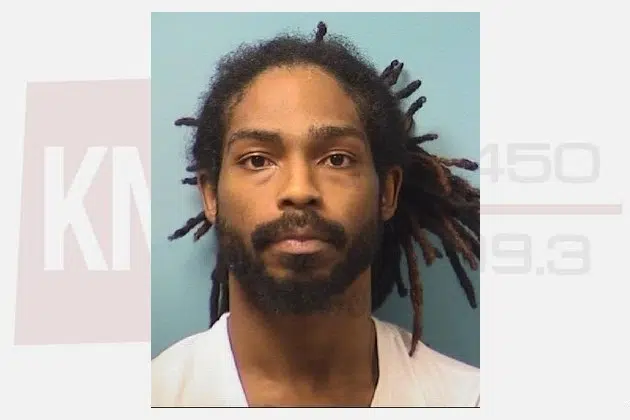(KNSI) — The Minnesota Court of Appeals Monday upheld the conviction of a St. Cloud man connected to a quadruple shooting in the summer of 2022.
According to court documents filed in Stearns County District Court, at 5:47 p.m. on July 6th, 2022, Daquan Ledbetter, Bryant Garth II, and Jamarcus Morris got out of a car that had driven up in an alley between 5th Avenue South and 6th Avenue South near 11th Street South and began shooting toward a group of people that were on 11th Street. Four people were hit, including a 15-year-old boy shot in the neck and shoulder. A 21-year-old was shot in the head, another 21-year-old in the chest, and a 19-year-old in the elbow. Witnesses told police there was an assault at a gas station the day before the shooting. There were also messages sent between the suspects and the victims, but court papers did not say if those messages contained any threats.
Ledbetter was charged with one count of unlawful possession of a firearm, four counts of aiding and abetting second degree assault, and four counts of aiding and abetting attempted first degree murder. In 2023, he was convicted on all nine counts and sentenced to 63 years in prison. When sentencing Ledbetter, the district court commented that it could not “fathom what teenagers possibly could have said or done that would so infuriate grown men that they couldn’t just ignore it and walk away.”
Ledbetter appealed his conviction, arguing that the evidence was insufficient to support his convictions for aiding and abetting attempted murder because it “supports a reasonable alternative hypothesis that he lacked the mental state required to commit attempted first-degree murder of the four specified victims,” according to the judgment.
It also reads, “Regarding guilt as an accomplice, Ledbetter argues that the evidence is insufficient because it supports a reasonable alternative hypothesis that he did not aid and abet attempted first-degree murder because, even assuming that at least one of the other shooters acted with the required mental state (which Ledbetter disputes), Ledbetter lacked knowledge that the other shooters were going to commit a crime and did not intend to aid the other shooters in the commission of the crime.” The panel said, “We are not persuaded.”
The judges say Ledbetter had planned to do it by parking a car so it was easier to flee the scene and also brought guns to what was supposed to be a fistfight, indicating he had planned to use them. They say he also had a motive to do it, as the group of victims was supposedly taunting Ledbetter and the others. Regarding the nature of the shooting, the group fired 28 times, hitting four people. Court papers say Ledbetter and the others were not shooting into the sky to scare the group, but “were aiming at individual people between shots and struck four.” They also say the “lapse between Ledbetter hearing the first shot and starting to shoot, however brief, suggests premeditation because he had time to decide to refrain from shooting.”
“Ledbetter’s argument is unavailing. Both groups were in the area for a fistfight between their respective members, and the other group’s taunting of Ledbetter and the other three men added to the shooters’ preexisting motive of anger toward the other group. And, though there is no evidence as to what, if anything, was said at Morris’s car, the absence of this information does not raise an inference inconsistent with premeditation when considered in the full context of the other indicators of premeditation. These indicators include that, when the taunting started, the shooters stopped and exchanged looks, withdrew their weapons, moved apart, and made deliberate movements toward the victims while openly carrying guns; the presence of wounds near vital organs; and the shooters’ decision to flee rather than to render aid. Further, around ten seconds passed between when the shooters started walking toward the victims and the first gunshot—more than sufficient time for premeditation to occur under our caselaw.”
“Ledbetter argues, however, that the evidence is insufficient to show premeditation because it does not prove beyond a reasonable doubt that any of the shooters had the specific intent to kill the four particular victims. We are unpersuaded.”
“The evidence is therefore sufficient to support his convictions for aiding and abetting attempted first-degree murder. Because the evidence is sufficient to support Ledbetter’s guilt as an accomplice, we need not evaluate his culpability as a principal.”
Garth was convicted and sentenced to 74 years in prison, Morris was also convicted and sentenced to 72 years in prison.
___
Copyright 2024 Leighton Media. All rights reserved. This material may not be broadcast, published, redistributed, or rewritten, in any way without consent.







